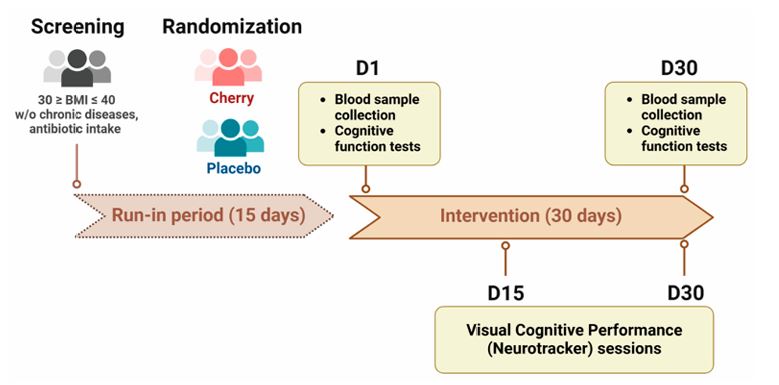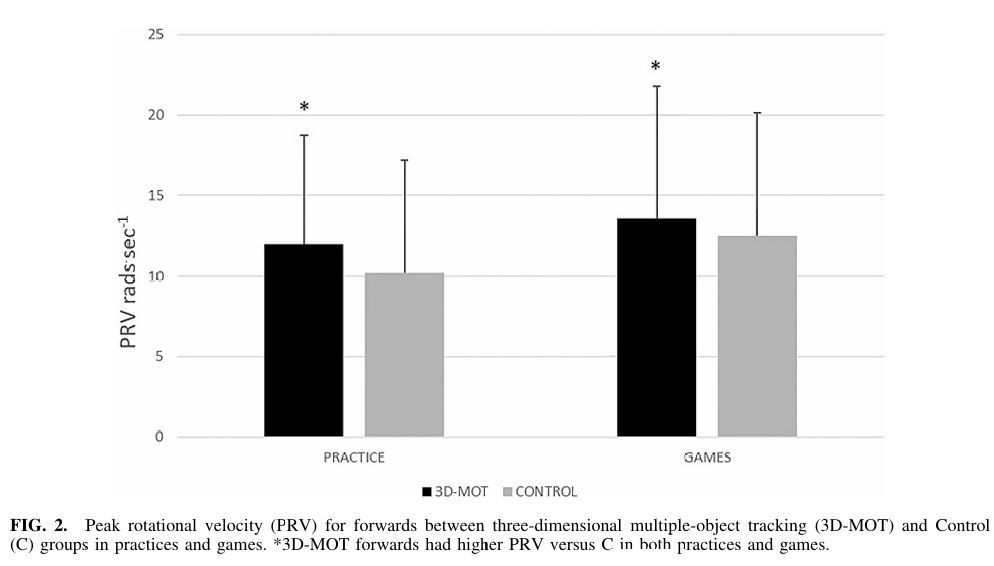NeuroTracker seamlessly integrates into different programs and adapts to the unique needs of your business.

NeuroTracker offers a ready-to-use training solution that sets up in just 10 minutes. Benefit from expert pre-made training programs for all user types and start deriving value immediately.

Each session takes just 6 minutes, making it easy to integrate into busy schedules without disrupting routines.

Easily onboard, monitor, and manage multiple users from a single dashboard—ideal for healthcare providers, educators, and performance organizations.

Significant cognitive gains can be seen in as little as 2–3 hours of distributed training—accelerating ROI and client outcomes.

Nearly anyone can train with NeuroTrackerX—regardless of age, ability, or background. It's effective for diverse populations and use cases.

Train on-site or remotely, on desktop or tablet—ideal for hybrid workforces, telehealth, or distributed teams.

Track individual and group progress with real-time analytics. Identify trends, optimize outcomes, and measure impact with data you can trust.

Our cloud-based platform is built for security and scalability across any size team or organization.

Assign custom plans based on individual goals, cognitive baselines, or professional roles—from rehabilitation to high performance.
NeuroTrackerX offers powerful cognitive training tools for both individuals and professionals. But when it comes to delivering consistent, measurable results at scale, our Business Software is in a league of its own.
Who It's for
Dashboard
Multi-User Management
NeuroTracker Training
Custom Sessions
Custom Questionnaires
Training Stats
Academy Certification
Support Resources
Advanced Options
Human 66 Brain Challenge
NeuroTracker is used by thousands of people, including high profile athletes and celebrities that share the same passion for improving their brain.
Start adding value to your services. Talk to our sales team whenever suits you!

With 15 years of independent research, NeuroTracker is a leading tool used by neuroscientists to study human performance.
Published Research Papers
Research Institutes Using NeuroTracker
Issued Patents and Patents Pending
A review of several NeuroTracker sports studies finds NeuroTracker to be a role model cognitive tool for improving soccer performance.
To review the existing perceptual-cognitive research and outline the relevance of NeuroTracker for the performance assessment and enhancement of competitive soccer abilities.
Several papers published on NeuroTracker were reviewed, including ‘Perceptual-Cognitive Training of Athletes’, ‘3D-Multiple Object Tracking task performance improves passing decision-making accuracy in soccer players’, ‘Visual tracking speed is related to Basketball-specific measures of performance in NBA players’, and ‘Enhancing Cognitive Function Using Perceptual-Cognitive Training’.
The combined existing research provides significant evidence for the usefulness of perceptualcognitive training to assess and enhance soccer abilities. Cognitive abilities are a significant feature of athletic excellence, and elite soccer players differ in their superior perceptual abilities in comparison to amateur players. NeuroTracker training has been found to improve high-level cognitive abilities known to be central factors in predicting soccer performance. Specifically, research has demonstrated that after just 3 hours of 3D multiple object tracking training, soccer players’ experienced a dramatic reduction in passing errors, from an error rate of 47%, down to just 28%.

A 20-30 minute NeuroTracker training intervention significantly improves multiple object tracking skills and working memory abilities.
To assess transfer from a NeuroTracker training intervention to near, mid-level, far transfer tasks.
84 graduate participants (av. 21 years old) were randomized to 3 trained groups and 1 passive control group. The trained groups completed either 5 or 3 standard sessions of NeuroTracker, or 5 sessions of a portable version of NeuroTracker (Microsoft Surface Pro tablet). The passive group completed only pre-post NeuroTracker baselines. All groups then completed pre-post assessments on a simplified 2D multiple object tracking task, an N-back working memory assessment, and on a video-based military driving task.
All trained groups showed significant improvements in NeuroTracker scores from 20-30 minutes of training. The passive control group also showed some modest improvements from only completing baselines. NeuroTracker training transferred to significant pre-post improvements in the 2D multiple object tracking test, but with smaller effects that improvements in NeuroTracker scores. Performance was found to be significantly better post-training for the trained groups on the working memory test, but not for the control group. No transfer effects were found for the video-based military task.

A single 6-min NeuroTracker baseline correlates to key professional soccer performance metrics over two seasons of play.
To investigate the relationship with NeuroTracker baselines and soccer player performance metrics across two professional seasons.
11 professional Greek soccer players from two major Super League football clubs completed a 6-min single NeuroTracker session baseline. Soccer-specific competition performance metrics were collected using the Wyscout analytics platform, including: team is winning/losing, actions with/without a yellow card, dribbles, through passes, forward passes, and assists.
Statistical analysis revealed NeuroTracker baseline score significantly correlated to actions when team is winning/losing, total actions without a yellow card, through passes, forward passes, and assists. The researchers suggest that such baselines could play a crucial and practical role in evaluating soccer players’ performance when under the demands of professional competition.

Dark sweet cherry supplementation improved working memory in obese adults but did not enhance NeuroTracker-measured visual cognitive performance beyond practice-related gains.
To evaluate whether 30 days of dark sweet cherry (DSC) consumption improves executive function, NeuroTracker 3D-MOT performance, neuropeptide levels, and circadian rhythm biomarkers in adults with obesity.
Method
• Single-blind randomized controlled trial
• 40 adults with BMI 30–40 kg/m²
• DSC drink (200 mL twice daily) vs isocaloric placebo for 30 days
• Executive function assessed using TMT, Digit Span (forward/backward), and DSST
• Visual Cognitive Performance (VCP) assessed via 15 NeuroTracker CORE sessions
• Blood biomarkers: neurotensin, substance P, oxytocin, cortisol, melatonin
NeuroTracker performance was evaluated using speed threshold changes across baseline (sessions 1–3) and final (sessions 13–15) blocks.
Executive Function
• Significant improvements in Digit Span Forward (p = 0.006) and Backward (p = 0.01) in the DSC group
• No between-group differences in TMT or DSST
• Benefits were more pronounced in females and higher BMI subgroup
NeuroTracker (VCP)
• Both cherry and placebo groups improved significantly over 15 sessions (practice effect)
• No significant between-group differences
• Mean change (Δ) VCP: Cherry 0.26 vs Placebo 0.25 (p = 0.94)
Biomarkers
• Neurotensin increased significantly in placebo group only
• Melatonin increased significantly in placebo group only
• No significant treatment effects on cortisol or oxytocin

https://peerj.com/articles/10211/
To examine whether individuals who play video games at a professional level in the esports industry differ from amateur video game players in their cognitive and learning abilities.
14 elite professional gamers and 16 casual video game players were assessed on a battery of standard neuropsychological tests evaluating processing speed, attention, memory, executive functions, and manual dexterity. In addition, both groups completed 15 distributed NeuroTracker sessions to assess dynamic visual attention and learning abilities.
Professional players showed the largest performance advantage relative to amateur players for visual spatial memory (Spatial Span), and with more modest benefits for selective and sustained attention (d2 Test of Attention), and auditory working memory (Digit Span). Professional players also had greatly higher initial speed thresholds on NeuroTracker, with the advantage increasing marginally over the 15 sessions. Overall, the cognitive assessments differentiated the professional and amateur groups, however there was negligible correlation with these results in terms of gaming experience in either group. In conclusion, standardized cognitive assessments revealed some elevated abilities of pro gamers, however NeuroTracker baselines and learning rates provided much more sensitive comparative measures.

Elite volleyball players significantly improved scores on sustained attention and processing assessments from an 8-week NeuroTracker training intervention.
To investigate the effectiveness of NeuroTracker training with elite volleyball players as a form of off-court cognitive performance training.
43 elite volleyball athletes performed pre—post NeuroTracker baselines, along with several transfer tests. The active group completed an 8-week NeuroTracker training program in-between pre-post tests, which also included volleyball specific dual-tasks. The control group did no NeuroTracker training, but completed regular volleyball training.
Controls showed no change in pre-post NeuroTracker baselines, while the active group approximately doubled their NeuroTracker speed thresholds. Near transfer tests for sustained attention and processing speed showed significant gains for the NeuroTracker group only. A far transfer motor-skill test was used but was of insufficient difficulty to signficantly differentiate the active and control groups. The researchers concluded that NeuroTracker provides an example of an effective method for improving athlete's cognitive capacities with an off-court training intervention.

A systematic review evaluating the scientific evidence behind NeuroTracker, concluding the tool reliably produces task-specific learning, but evidence for far transfer effects remains methodologically limited.
To systematically evaluate the scientific evidence supporting NeuroTracker as a perceptual-cognitive training tool, examining both (1) whether it trains the cognitive functions claimed and (2) whether training transfers to other domains, particularly real-world performance.
NeuroTracker consistently produces improvements on the trained 3D-MOT task itself (robust task-specific learning). Near transfer evidence exists, but some study results are are inconsistent or limited by small samples or methodological weaknesses. Far transfer evidence is limited to only a small number of studies, with mixed outcomes—two of three far-transfer studies reported no significant effect. Methodological concerns of existing research include lack of preregistration, sample sizes, unmatched control groups, and inconsistent reporting of transfer outcomes. The authors also argue that the cognitive processes underlying 3D-MOT are complex and not fully aligned with some marketing claims.
NeuroTracker 3D-MOT baseline performance was established using CORE sessions, and the intervention showed gains in tracking ability though broader performance transfer was limited.
To evaluate the effects of a vision training program — including 3D multiple object tracking (3D-MOT) as implemented in NeuroTracker — on perceptual-cognitive performance in an athletic or high-performance context.
Participants completed baseline NeuroTracker assessments using the standard CORE program (three CORE sessions and one sustained attention session) to establish baseline dynamic tracking speed thresholds. The training protocol involved repeated 3D-MOT sessions embedded within a broader vision training regimen. Performance was assessed pre- and post-training.
Baseline assessments used the NeuroTracker CORE protocol to quantify tracking thresholds. Post-training increases in baseline tracking performance were observed, suggesting that repeated 3D-MOT exposure enhanced basic perceptual-cognitive tracking ability. However, the pilot nature of the study and limited transfer to broader functional outcomes indicate that while 3D-MOT improves task-specific performance, the broader utility for real-world or sport performance remains preliminary.

Attention and feedback are known to play critical roles in learning. This preliminary study sought to assess the benefits of instant feedback within NeuroTracker task performance.
38 young adults (mean 23yrs old) completed 4 NeuroTracker sessions over two days. 19 participants were assisted with feedback on test performance throughout the sessions, and 19 were given no feedback. Pre and post training assessments were completed using the Continuous Performance Test II to measure cognitive function.
The participants assisted with feedback demonstrated greater improvement in NeuroTracker scores over the 4 sessions. The feedback group also demonstrated better transferability effects to the CPT-II task, reflected by a significantly decreased pre/post mean error rate. The results indicate that feedback has a positive effect on performance and may be an important aspect of transfer to cognitive functions.

Learn the Fundamentals of NeuroTracker Science & Technology through our Academy
NeuroTracker Academy is an education platform that has been designed by NeuroTracker experts and key opinion leaders. Find access to a wealth of resources and specialized application modules that will enable users and trainers alike to gain a deeper understanding of the science and technology.

We proudly collaborate with a select group of innovative partners who share our passion for cognitive improvement. Their wide range of expertise helps apply the technology in cutting-edge ways, shaping the future of brain training. Join us to unlock your full potential!